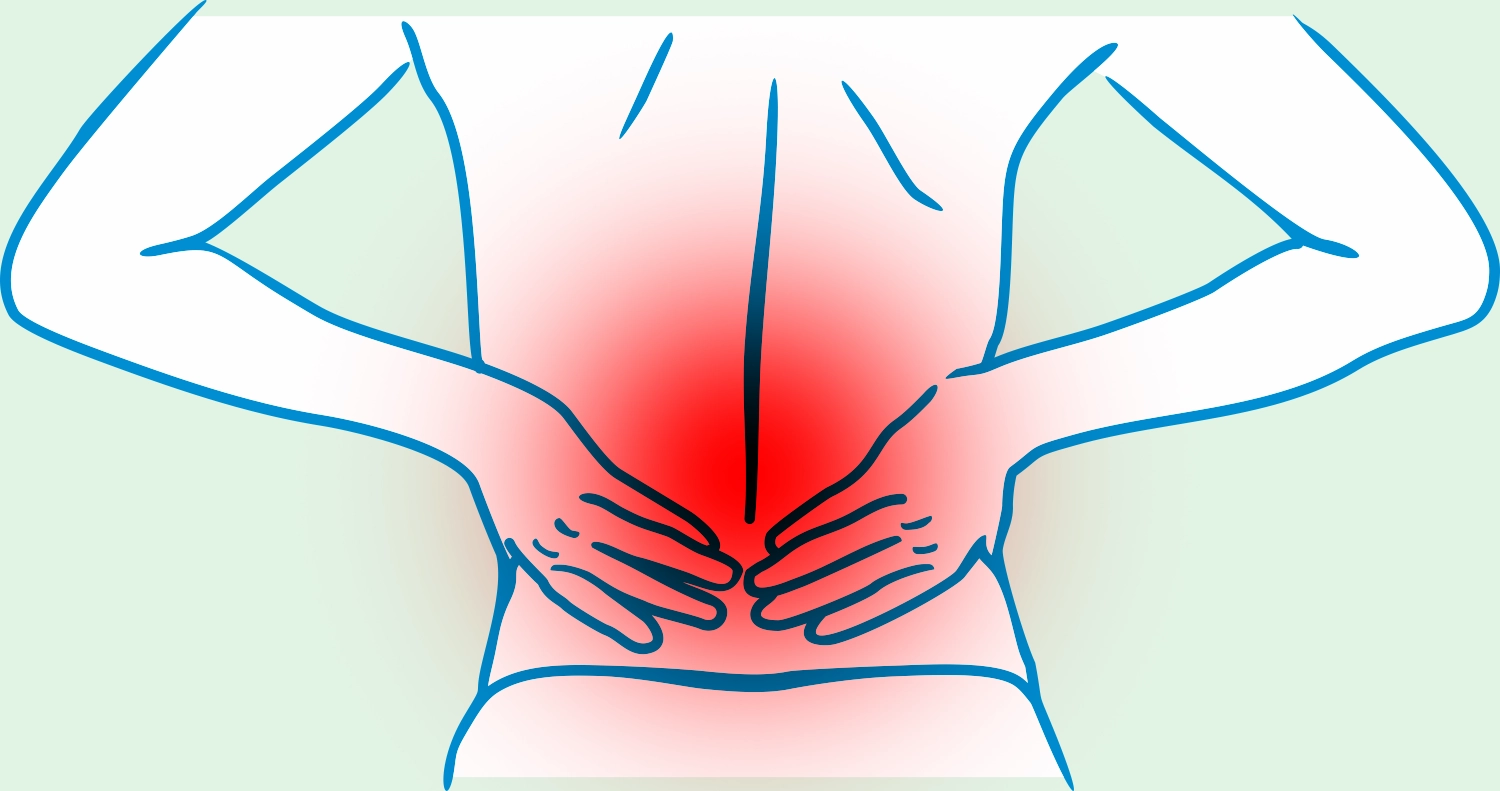To provide services at the highest level, we use cookies. Using the website requires you to choose settings related to their storage on your device. If you want to know what each type of cookie is used for, click the Details button below.
How to overcome back pain during the period?20 lutego 2024 |

Back pain during menstruation can result from hormonal changes that occur in the body throughout the menstrual cycle. A decrease in progesterone and estrogen levels can lead to uterine contractions, which in turn can cause pain in the lower back, or lumbar spine area, for some individuals. These contractions are caused by prostaglandins, chemicals that also increase pain perception.
Back pain before menstruation usually concentrates in the lower back. Some people feel it as pain in the lower back, sometimes confusing it with spine pain. Some individuals may also feel radiating pain extending to the pelvic and hip area. However, the location and intensity of pain vary depending on individual characteristics, so it's important to stay alert and listen to the signals given by the body.
Various methods can be used to alleviate menstrual pain, including nonsteroidal anti-inflammatory drugs (NSAIDs) such as ibuprofen or paracetamol. Warm compresses on the lower back can also be helpful, so it's always worth having a hot water bottle on hand. Consider light physical activity like yoga or stretching. There are even specific yoga poses for menstruation. Breathing exercises, relaxation, and a proper diet with high intake of calcium, magnesium, zinc, and B vitamins can also be very helpful.
No, severe menstrual pains are not normal and should not be ignored. This should be emphasized unequivocally. While many people experience understandable discomfort during menstruation, intense pain should never be considered normal. It can be a signal of health issues, including conditions such as endometriosis or fibroids. It's worth consulting a good doctor to properly identify the cause of severe pain and start appropriate treatment. Don't let anyone convince you that pain during menstruation is normal and just part of who you are.
In the case of very painful periods, it is recommended to visit a gynecologist to rule out any health issues. In addition to standard pharmacotherapy, the doctor may suggest hormonal contraceptives, which regulate the menstrual cycle and reduce pain intensity in many individuals. In some cases, additional tests such as ultrasound or CT may be recommended to thoroughly examine the causes of discomfort. Depending on the diagnosis, further tests and treatments are recommended, as well as lifestyle changes.